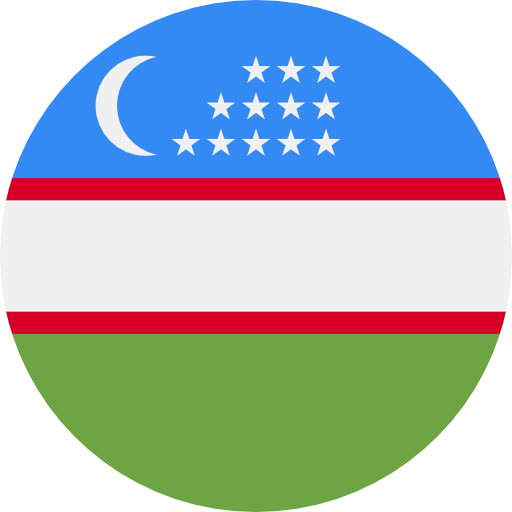INTELLEKTUAL MATN TAHLILI
Maqola haqida umumiy ma'lumotlar
Fan va texnikaning yuksak darajada rivojlanishi natijasida ijtimoiy saytlar orqali qabul qilinadigan ma’lumotlar hajmi boshqarib bo‘lmaydigan tarzda keskin oshib ketdi. Ko'pchilik foydalanuvchilar duch keladigan asosiy muammo - vaqt yetishmasligi. Sababi, barcha ma’lumotlarni o‘qishning iloji yo‘q. Bu esa ushbu ma’lumotlarni saralash zaruratini tug’diradi. Shu sababli Tabiiy tillar jarayoni (NLP), Mashinaviy o’qitish (Machine learning), Ma’lumotlarga ishlov berish (Data Science) va Sun’iy intellekt kabi sohalarga qiziqishning o‘sishi kuzatildi. XXI asr texnologiyalar va intellektual salohiyat asrida insonlarning fikrini o‘rganish bo‘yicha yangi metod paydo bo‘ldi.
1. Abduraxmonova N. Z. "Linguistic support of the program for translating English texts into Uzbek (on the example of simple sentences): Doctor of Philosophy (PhD) il dis. aftoref." (2018).
2. Abdurakhmonova N. The bases of automatic morphological analysis for machine translation. Izvestiya Kyrgyzskogo gosudarstvennogo tekhnicheskogo universiteta. 2016;2 (38):12-7.
3. Abdurakhmonova N, Tuliyev U. Morphological analysis by finite state transducer for Uzbek-English machine translation/Foreign Philology: Language. Literature, Education. 2018(3):68.
4. Abdurakhmonova N, Urdishev K. Corpus based teaching Uzbek as a foreign language. Journal of Foreign Language Teaching and Applied Linguistics (JFLTAL). 2019;6(1-2019):131-7.
5. Abdurakhmonov N. Modeling Analytic Forms of Verb in Uzbek as Stage of Morphological Analysis in MachineTranslation. Journal of Social Sciences and Humanities Research. 2017;5(03):89-100.
6. Abdurakhmonova N. Dependency parsing based on Uzbek Corpus. InProceedings of the International Conference on Language Technologies for All (LT4All) 2019. 7. Aripov M., Sharipbay A., Abdurakhmonova N., Razakhova B.: Ontology of grammar rules as example of noun of Uzbek and Kazakh languages. In: Abstract of the VI International Conference “Modern Problems of Applied Mathematics and Information Technology - Al-Khorezmiy 2018”, pp. 37–38, Tashkent, Uzbekistan (2018)
8. Go A., Bhayani, R., & Huang, L. (2009). Twitter sentiment classification using distant supervision. CS224N Project Report, Stanford, 1(12).
9. Kubedinova L. Khusainov A., Suleymanov D., Gilmullin R., Abdurakhmonova N. First Results of the TurkLang-7 Project: Creating Russian-Turkic Parallel Corpora and MT Systems. Proceedings of the Computational Models in Language and Speech Workshop (CMLS 2020) co-located with 16th International Conference on Computational and Cognitive Linguistics (TEL 2020) .2020/11: 90-101
10. Kuriyozov E., Matlatipov S. Building a new Sentiment Analysis Dataset for Uzbek Language and Creating Baseline Models.// Multidisciplinary Digital Publishing Institute Proceedings. 2019.-№1. Pages 37.
11. Rabbimov I., Mporas I., Kobilov S. Investigating the effect of emoji in opinion classification of uzbek movie rewiev comments. International Conference on Speech and Computer Science. -2020.–P.435-445.
12. Chen Yanqing and Steven Skiena, 2014. Building sentiment lexicons for all major languages. In Proceedings of the 52nd Annual Meeting of the Association for Computational Linguistics (Vol. 2: Short Papers). Baltimore, Maryland: Association for Computational Linguistics. Chollet, Franc¸ois et al., 2015. Keras. https:// github.com/fchollet/keras
Allanazarova, S. Y., & Abduraxmonova , N. Z. (2022). INTELLEKTUAL MATN TAHLILI. Academic Research in Educational Sciences, 3(4), 358–364. https://doi.org/10.24412/2181-1385-2022-4-358-364
Allanazarova, Sabohat , and Nilufar Abduraxmonova ,. “INTELLEKTUAL MATN TAHLILI.” Academic Research in Educational Sciences, vol. 4, no. 3, 2022, pp. 358–364, https://doi.org/10.24412/2181-1385-2022-4-358-364.
Allanazarova, Y. and Abduraxmonova , Z. 2022. INTELLEKTUAL MATN TAHLILI. Academic Research in Educational Sciences. 4(3), pp.358–364.
 O'zbekcha
O'zbekcha English
English Русский
Русский


